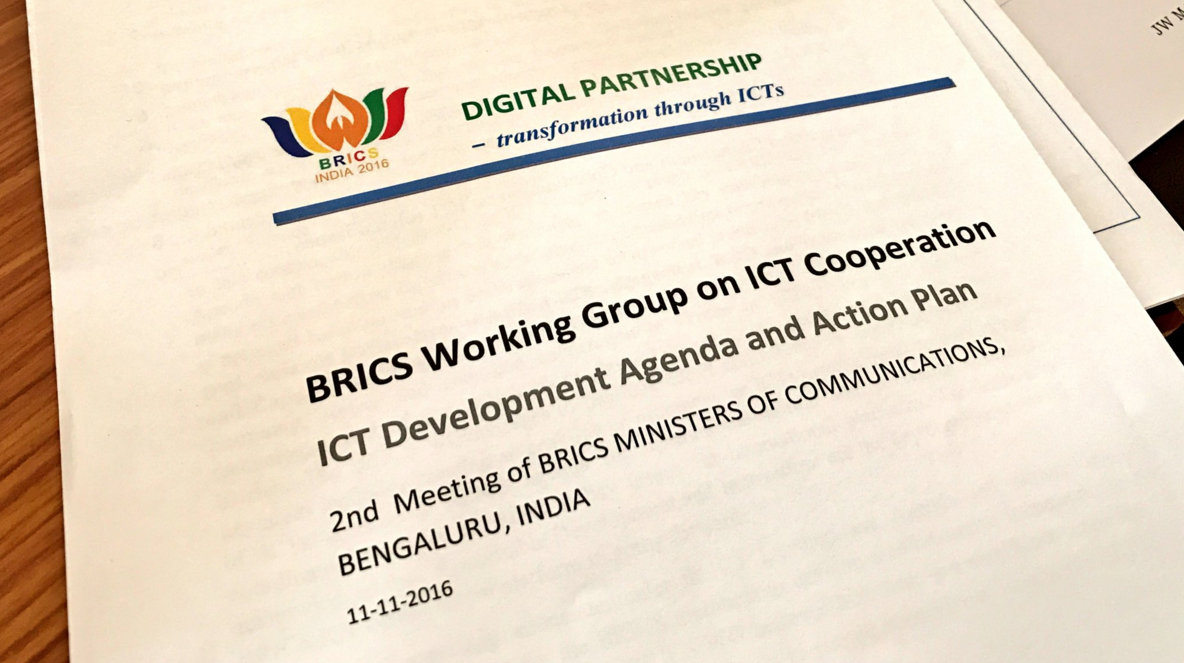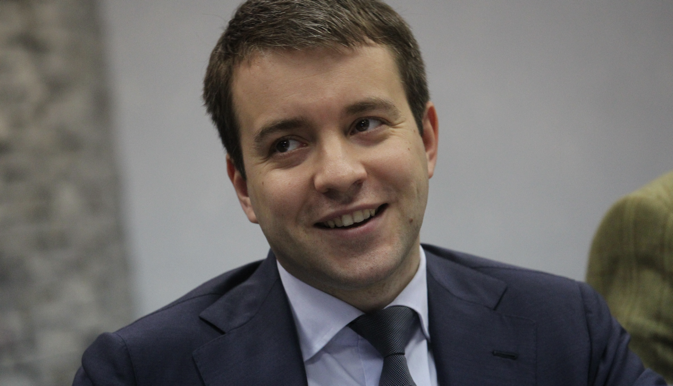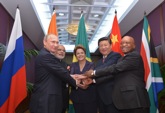The BRICS have a joint IT action plan

The Action Plan will allow BRICS to develop cooperation both at the bilateral and at multilateral levels.
twitter.com/nnikiforovBRICS Ministers of Telecommunications and Information Technologies adopted a joint development programme and an action plan on information and communication technologies (ICT) at a meeting held in India last week.
This meeting was in continuation of the Russian initiative set out in Ufa Declaration, adopted at the seventh BRICS (Brazil, Russia, India, China, South Africa) summit in July 2015. The first such ministerial meeting was held in Moscow in October 2015.
The Action Plan includes six key areas: formation of a national development programme based on ICTs; interaction among sectoral ICT companies at all levels; research and development, as well as an innovative development in the field of ICT; expansion and strengthening of the capacity of the digital economy; development of e-government, including public mobile applications; international cooperation and coordination of joint activities.
The Russian delegation was headed by Nikolai Nikiforov, Minister of Communications and Mass Communications.
"We welcome the approval of the Action Plan, it will allow us to develop our further cooperation both at the bilateral and at multilateral levels,” said Nikiforov. “We aim to expand cooperation of the sector companies in ICT, which will have ample opportunity to achieve the goals set by the leaders of our countries."
Prepared by the BRICS Working Group on cooperation in ICT, the document will help the BRICS countries cooperate on an ongoing basis and to carry out specific tasks within the set deadlines. It takes into account the outcome of an international study that determines the strengths and weaknesses of all the BRICS economies, and aims to coordinate the positions of all the countries on key issues in the development of the digital economy.
The document notes the important role played by digital infrastructure in socio-economic development, national security and the stability of the BRICS. It provides the highest priority to the protection of digital infrastructure in the countries of the group in the context of the cross-border nature of the virtual world, and the topical issues of cyber security and the need for the countries to work together to address this problem.
According to the document, the BRICS leadership aims to maximize the availability of all forms of digital communication for the public.
Country leaders were established for each of the key focus areas. These leaders were supposed to jointly set the agendas, directions to ensure the work of the expert groups and to set specific targets and timetables for their implementation.
Russia, along with South Africa, is responsible for "Expanding and strengthening the capacity of the digital economy." Collaboration between Russia and India was to move towards "e-government development, including public mobile applications."
"We see how the world is changing around us and how the boundaries are blurred using ICT,” said Nikiforov. “It is hard to even imagine how much progress can be achieved if several countries pool their efforts in this direction, or are even able to create a single electronic system. I am sure that sooner or later it will be implemented. I hope that it is the BRICS union that can make the first step on the way of its creation. "
The third meeting of the BRICS ICT Ministers will be held in China in 2017.
All rights reserved by Rossiyskaya Gazeta.
Subscribe
to our newsletter!
Get the week's best stories straight to your inbox

